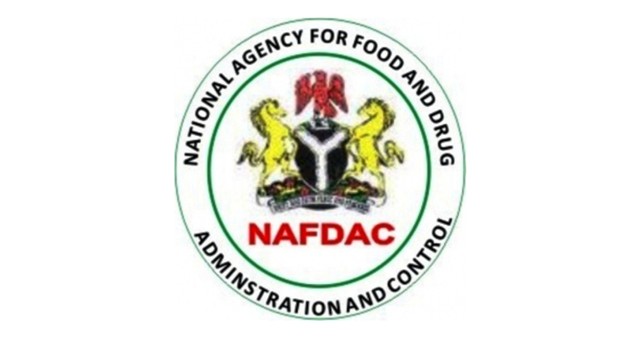Editorial
NAFDAC, Sachet Water And Public Health

Recently, the Rivers State Coordinator of the National Food and Drug Administration and
Control (NAFDAC), Mrs Chinelo Ejeh disclosed that no fewer than 200 sachet water producers in Rivers State had been sanctioned by the agency, obviously for falling short of the standard prescribed for carrying out their business.
According to the NAFDAC boss, the agency, could not but wield the big stick as most of the operational premises of those in the sachet water business in the state, particularly in Port Harcourt, do not measure up to the expected minimum sanitary hygienic conditions.
She noted the indiscriminate proliferation of the business and hinted that her agency was challenged in effectively monitoring and enforcing regulations, not just because of the huge number of entrants into the business but due to security concerns as well.
The state coordinator specifically mentioned the Diobu area of the Rivers State capital as one of the most problematic vicinities where her agency’s operatives have regularly been impeded with threats of violence and aggression.
“Diobu is a major challenge because of the security in the area. But we will not give up. Most of our inspectors have been threatened with violence and so more force will be used to ensure the right things are done,” Mrs Ejeh said.
Indeed, The Tide agrees with the NAFDAC executive that the right things must be done and be done with a sense of urgency and mission. It is no exaggeration that water is essential to life and it is at the heart of personal as well as public healthcare.
This is why we think that NAFDAC needs all the support and assistance it can get in order to properly be on top of the situation that, if not checked, could give rise to public health issues like Cholera and other water borne diseases.
The point must be noted that anyone that antagonises NAFDAC in its operations to regulate and ensure compliance with laid down standards of operation by food, drug and beverages producers does not mean well for the health and general wellbeing of the generality of the people and therefore must be seen and treated as a public enemy.
Government, in this case, the Rivers State Government, should, therefore, take adequate interest in beefing up security around NAFDAC officials, especially those on monitoring and enforcement duties to enable them effectively clamp down on those who have decided to compromise basic rules and standards and put the lives of the masses at risk just for their selfish gain.
The generality of the people themselves who are the consumers of the compromised items must take their lives in their hands and be vanguards in the campaign for sanity in the industry. These agents of death who churn out harmful products live and operate amongst the people. The vicinity and communities within which they site these deadly businesses should be in the frontline of surveillance and report them to appropriate authorities to weed them out.
NAFDAC, on its part, must look inwards with a view to sieving out bad eggs within its fold. There is no denying the fact that a lot of these public enemies are still in business due to the active connivance of some unscrupulous operatives of the agency.
It is not unfounded, neither is it untrue that NAFDAC officials sometimes take bribes and turn a blind eye to erring and defaulting business premises while at other times clamp down on others who are up to par because they do not go to give them money.
The call therefore is for NAFDAC to discharge its duties with patriotism, good conscience, sincerity of purpose, highest standard of professionalism, morality, consideration for human life and fear of God.
The agency must also endeavour to take its operations beyond the precints of Port Harcourt and its environs because those who find the city too unconducive to operate could move to the rural areas, and some may have already done so, to produce and take back to the market in the metropolis.
The Tide notes that the importance of sachet water is underscored by the fact that it is the commonest and the most affordable source of drinking water among the people and therefore needs to be properly regulated in order to safeguard the health of the masses.
Finally, we wish to remind the Rivers State Government that the situation has been made worse by the fact that public water supply is yet to be fully restored, particularly in Port Harcourt and its environs.
While we are not unaware of the efforts and challenges of government at making the taps run again, we want to encourage government not to relent or give up but to press on as the availability and access to potable water by the populace will go a long way in stemming diseases, including the now trending Lassa fever that costs the government enormous resources to contain.
A healthy people is a wealthy people, and health begins with water.
Editorial
Beyond Accessing Bonny By Road

Editorial
Time For GL 17 In Rivers

Editorial
For A Prosperous 2026

-

 News7 hours ago
News7 hours agoSERAP Sues Govs, FCT Minister Over Security Vote Spending
-

 News7 hours ago
News7 hours agoAkande Proffers solution to insecurity in Nigeria
-

 Sports4 hours ago
Sports4 hours agoMan of The Match award Excites Nwabali
-

 Sports4 hours ago
Sports4 hours agoTinubu Lauds Super Eagles’ after AFCON bronze triumph
-

 Sports3 hours ago
Sports3 hours agoAFCON: Lookman gives Nigeria third place
-

 Sports4 hours ago
Sports4 hours agoFulham Manager Eager To Receive Iwobi, Others
-

 News7 hours ago
News7 hours agoRSG Sets Up Panel To Investigate Alleged Extortions At College Of Nursing Sciences
-

 Sports4 hours ago
Sports4 hours ago“Mikel’s Influence Prevent Some Players Invitation To S’Eagles Camp”

